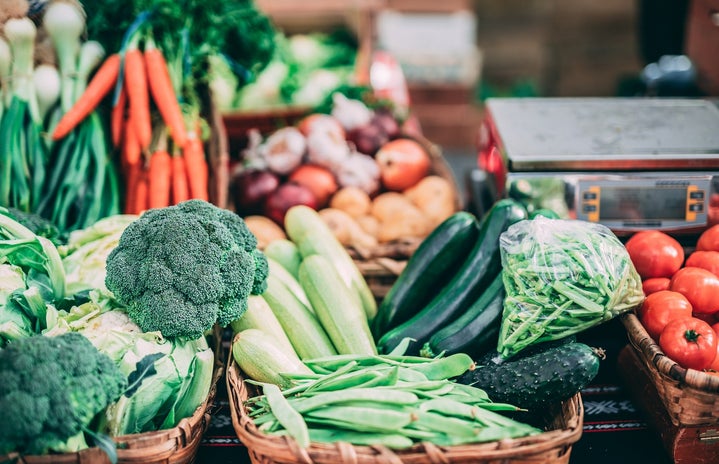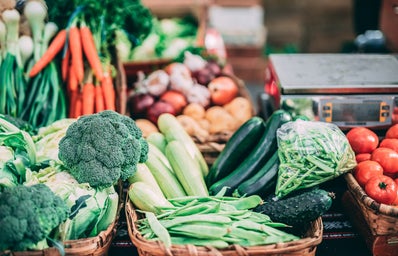I have become very interested in zero waste in my journey to being more sustainable, and one of the ways I have been practicing becoming more sustainable and conscious of my environmental impact is by reducing my food waste. All this really means is limiting the amount of food that goes into the trash and is taken to the landfill.
Food waste is an environmental issue because when food rots in the landfill, it creates methane, a harmful greenhouse gas that contributes to global warming, and the production of food uses so much water that it becomes very wasteful when this food is just discarded, according to Move For Hunger.
But it’s also a humanitarian issue. A study found that due to financial reasons, food insecurity is endured by about 13 percent of Canadian families, as cited in a study by PROOF, meaning they aren’t able to access food many of us might buy and throw away. I realize it may be difficult for us individually to help those experiencing food insecurity, but we can do our part to reduce the amount of food we waste, and help organizations that save perfectly good food from heading to the landfill and provide it for those in need.
Here are a few ways I have reduced my food waste that you can try too:
- Plan your meals
-
This can sound restricting but it’s very rewarding. I like to plan my meals throughout the week or at least write down some ideas for meals that I want to make so that I stock up on groceries I’ll actually use. If I’m not planning my meals and I hit the grocery store, I often buy things I think I’ll use but forget about once I put them in my fridge, so planning your meals can help reduce the amount of food that goes bad just because you’ve forgotten about it
- Only make what you know you’ll eat
-
When I started meal prepping, I would prep for an entire week but get bored of my meals after three days and make something else. The food that I made would then go bad because I wasn’t eating it so I would throw it out. Making smaller amounts of food is less risky, especially if you’re only cooking for yourself. If you do end up having too much food you won’t eat, the next tip comes in handy.
- Your freezer is your best friend
-
This may be an issue for some if you have a small freezer, but one of the ways I reduce my food waste is just freezing things before they go bad. Have bananas that are so brown and mushy you won’t eat them? Freeze them! They’re perfect for smoothies or when you want to make banana bread. Made too much soup? Freeze it. You can just defrost and heat it up when you’re too busy to actually cook.
- Compost
-
This is something my current building doesn’t have but I do want to look into possible options of composting near me. Composting is just diverting food waste from the landfill by throwing it in the compost so that it can biodegrade and return to the earth or be used as fertilizer. When food is thrown into the landfill, it has a hard time returning to the ground because of the non-biodegradable garbage underneath it, so it just gives off emissions, which makes composting your food waste much more sustainable.
- Use your scraps
-
I personally like to peel most of my veggies, like potatoes and carrots, when I use them for soup, mashes or roasted veggies, but I don’t throw these peels or other scraps, such as onion shells and broccoli stalks, into the trash. Instead, I’ve a big bag I call my scrap bag that I keep in the freezer and put these scraps in. Then, when it gets full, I put the contents in a pot on the stove with a variety of spices and a bit of tomato paste to make my own veggie broth. It not only helps you reuse your scraps but it tastes delicious and saves you from buying broth at the store. You can find tons of ways to use almost any of your kitchen scraps all over the internet, including using your coffee grounds as plant fertilizer or as a natural body scrub.
I’ve noticed these ways not only help me reduce my food waste but also help lower my spending. The money I do save allows me to donate to organizations that help save food from the grocery store before it gets thrown out and replaced, and supply it where it’s needed.



